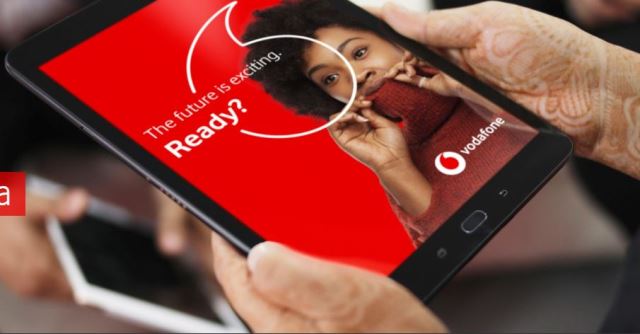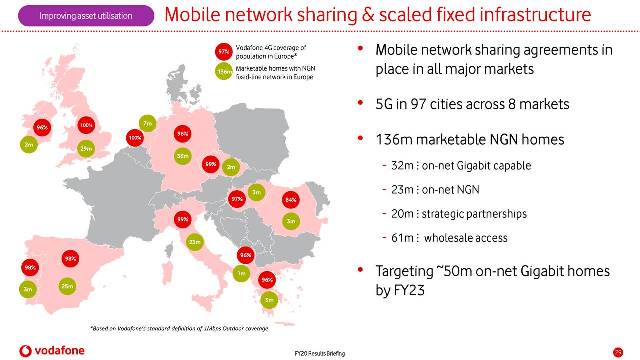Vodafone Group has revealed that its capital expenditure for the fiscal year 2019-20 was €7.4 billion with a capital intensity of 16.5 percent.
 Spectrum was only €0.2 billion this year, significantly below its longer-term average of €1.2 billion principally because of the deferral of German 5G spectrum fees which are now phased over 10 years.
Spectrum was only €0.2 billion this year, significantly below its longer-term average of €1.2 billion principally because of the deferral of German 5G spectrum fees which are now phased over 10 years.
Vodafone CEO Nicholas Read said: “We prioritize our investment in maintaining our critical infrastructure across both our fixed and mobile networks. Our rate of investment is expected to remain broadly equivalent to 17 percent of revenues.”
Vodafone launched 5G in 97 cities across 8 markets in Europe. It also launched speed-tiered unlimited plans and established effective second brands in the value segments. These actions, along with many others, have delivered a sixth consecutive quarter of improvement in customer retention.
“We’ve accelerated our digital transformation, contributing €400 million of net Opex savings in Europe for a second year running, and remain on track to deliver our 3-year €1.2 billion target,” Nicholas Read said.
Vodafone’s mobile data traffic has increased 15 percent in Europe, voice traffic rose by 40 percent and fixed data traffic grew by 70 percent in some of markets. Vodafone has accelerated investment in a number of areas to boost network capacity to meet increase in demand.

Five priority areas
Vodafone has identified five priority areas.
First, Vodafone will expand future-proof network infrastructure through 5G deployment and next-generation fixed-line technologies, including DOCSIS 3.1, SD-WAN and cloud.
Second, Vodafone will support governments as they seek to integrate e-health and e-education solutions into their new normal public service frameworks.
Third, Vodafone will ensure that the most vulnerable get the access they need and support in digital literacy.
Fourth, Vodafone will promote the adoption of digital technologies for all businesses, with a particular emphasis on SMEs.
Fifth, Vodafone will support government exit strategies through targeted deployment of digital technology.
Vodafone said over 90 percent of all mobile data traffic is now on 4G, allowing the mobile operator to begin the 3G switch-off. Vodafone started switching off 3G network in the Netherlands, ensuring cost savings and allowing spectrum refarming to more efficient 4G, 5G networks.
Vodafone said its fixed network can now market NGN broadband to over 136 million homes. Vodafone has more than 4 million unlimited mobile customers across 6 markets in Europe. This year, mobile data per user was up to 5.7 gig, which is 55 percent up year-over-year.
Vodafone has AI assistant TOBi live in 15 markets, handling over 40 percent of all customer contacts.
Vodacom, the Africa business of Vodafone, said mobile data usage per user is increasing at over 40 percent per annum in Africa. Vodacom has 4G network penetration of 22 percent. Vodacom is building 4G network to ensure higher ARPU.
Vodafone said over 30 million cars are connected by Vodafone through IoT platform that now has over 100 million connections.
“We are now coupling our IoT expertise with 5G to offer mobile private networks. We are targeting 30 large-scale customer pilots across 3 industry verticals this year,” Nicholas Read said.





